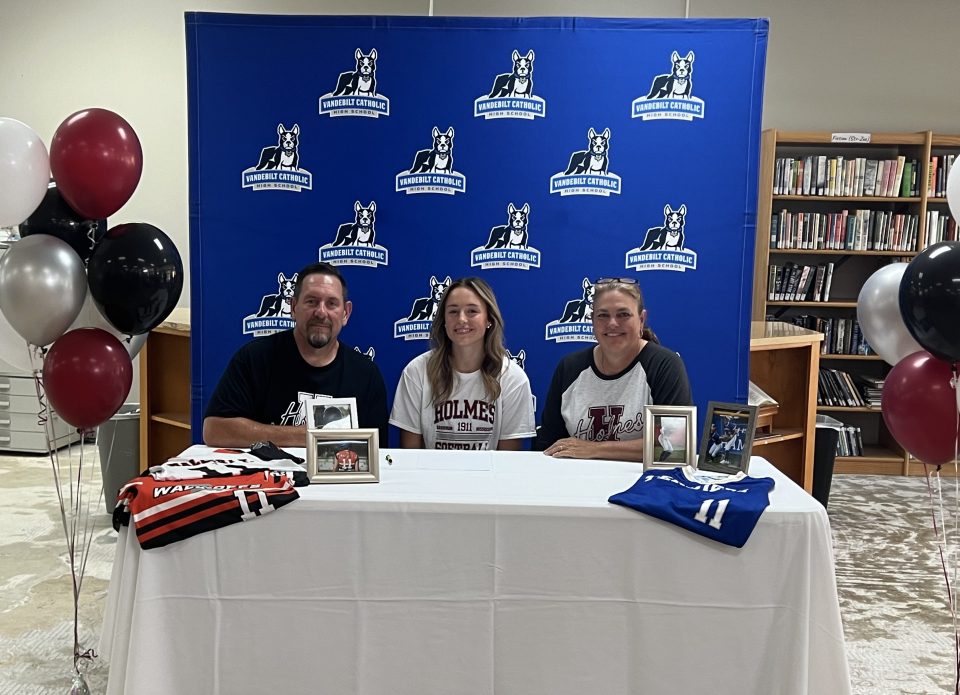
Williams red-hot to start season
July 16, 2014
LSU eyes replacement after Sanchez’s retirement
July 16, 2014I hate to say this, because it makes me feel really, really old. But I’ve been in sports media for almost exactly nine years now. I cut my teeth in Aug. 2005 as a young freshman journalism student working at the Daily Reveille, which is the student newspaper of Louisiana State University.
The words “student newspaper” immediately make one think of a Mickey Mouse operation, but the Reveille was anything but that.
The pressures were real. We published every school day, working 30-40 hours a week, while still juggling the difficulties associated with being a full-time student. The characters we covered were intimidating – what is bigger than LSU football in the state of Louisiana?
The reporters were all students. We acted completely on our own with no “adult” owning the ability to control any of our decision-making ability. And because of that, we made more than our share of mistakes, myself included.
But the four years that I spent with the Reveille taught me more about journalism and the newspaper business than any other experience that I’ve ever had in this industry. They are lessons and values that I’ve carried with me for the past four-plus years as your Sports Editor here for the Tri-Parish Times.
I just wish more reporters remembered the core values of our business, values that have become endangered to near-extinction within our field.
I wish that the lessons taught to us in college would still be executed and utilized today and that finding the unbiased, FULL and COMPLETE TRUTH would be more important than being the first to file a story on a given topic.
Sports journalism today sucks. Journalism as a whole sucks.
It just does.
I’m sorry to say it so bluntly, and it pains me that I have to say it at all, because I love this business and I love my job.
But it sucks. Sure, there are exceptions to the rule and there are hundreds of quality reporters out there doing phenomenal work. But as a whole, today’s journalism is bad. Our average is far lower than it has ever been in history. As a result, the public trusts us less today than they ever have before, according to a Gallup poll conducted in 2013.
The reason for this is because the ways that most reporters do their jobs today are off kilter. The ways that we define quality journalism and the ways that we define a “good job” from a reporter are wrong and way off.
Let me explain.
As a journalism student at LSU, we were taught that the goal of our job was to create UNBIASED, FAIR and BALANCED stories that were 100 percent truthful at all costs. If a fact was unconfirmed and deadline neared, leave it out and follow-up the next day. If the story was 99 percent confirmed, then hold onto it until it’s 100 percent confirmed.
If a story is tilted toward one side, make every attempt to balance it by contacting other folks involved to get their perspectives on what did or did not take place.
Doing this creates trust between the reporter and his/her sources, and it also creates trust between the newspaper/media outlet and its audience.
That’s a win/win situation for all and a situation we should all strive to attain in our jobs.
But just look at the world of modern sports journalism and see the glowing examples of how this trust has been broken and how it likely will never be brought back because we’re headed in the wrong direction.
Let’s look at the LeBron James story as an example. I will not mention any reporters’ names along the way, because everyone in the business is equally at fault for where we stand today.
As you all know, James is an NBA free agent who played last season for the Miami Heat. After opting out of his contract with the team, he became free to sign with any of the 30 teams in the league.
The first day of free agency was July 1.
On that day, the television and newspaper fiddle faddle was that James was working in unison with teammates Dwyane Wade and Chris Bosh and would re-up with the Heat within a few days.
The reports cited anonymous sources who said that the Big 3 had been in contact and were working in unison.
Either someone lied or the anonymous sources were made up (something too common in journalism today), because Chris Bosh said a few days later on record that he had not heard from James in several days and that the trio was “100 percent” not acting as a unit.
A few days later, the talking heads were at it again, saying that James’ agent met in person with a slew of teams face-to-face, including the Cavs, Bulls, Rockets, Mavericks and Lakers.
Again, not true.
Some of those conversations were over the telephone. The one with the Rockets definitely was, according to Houston GM Daryl Morey, who said he hasn’t visited James’ agent in person since free agency began.
Then, of course, we got the news on Thursday afternoon from a reputable reporter that Akron Police had been called to James’ Akron property to prepare for an announcement to be made at 3:30 p.m. EST.
Not true.
No such decision was made at that time. Again, another inaccurate report from someone the public trusted to give us the truth.
It sounds nitpicky and like I’m just a disgruntled reporter, but I could pick and choose the facts from any big-time news story these days.
It seems like the only thing consistent about our industry is that the stories provided are inconsistent.
The facts always stay fluid, changing as the REAL story unfolds. The journalists involved never get the blame, because today it’s all about a race to be first and not a race to be correct.
It’s sad, and it’s something that’s completely 180 degrees different than how I was taught it at LSU.
I want to go back to the days when facts and accuracy matter – the day when chasing web clicks and being first didn’t matter so much.
Today’s journalism sucks.
And the public agrees. They dislike our work more today than ever before.
I understand that if it isn’t broke, then don’t fix it.
But what if it is broke? Then what do you do?
That’s the dilemma that myself and other reporters around the world have to ask ourselves now and into the future.
How do we win that trust back? What we’re doing now isn’t enough.













